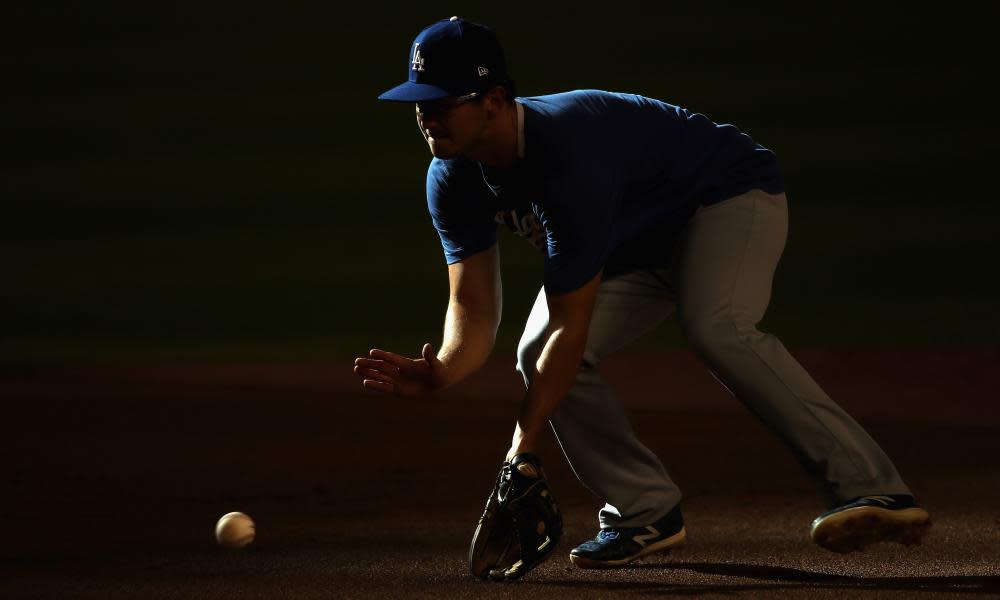Baseball is using coronavirus as a pretext for permanent change

One of the first examples of baseball’s near-sighted willingness to deface itself in the name of maximum profits came back in 1887, when in an effort to boost attendance for the upcoming season, the joint major-league rules committee decided to allow the batter four strikes instead of three. Chaos ensued, predictably, and they changed the rule back for 1888.
Indeed, the blight of greedy owners content to muck with the formula and squeeze every possible dime out of the enterprise at the expense of what makes baseball good is hardly a modern phenomenon. History suggests there may be no American institution with a more decorated tradition of fixing things that aren’t broken. But the fundamental changes to Major League Baseball that have been under consideration in recent days represent a new low.
As a refresher: the pandemic led to the shortening of MLB’s familiar 162-game, six-month marathon to the current 60-game, 67-day sprint (though not before a self-destructive standoff between the owners and the players that cast doubt on whether there would be any season at all). It also gave baseball commissioner Rob Manfred the perfect cover to enact a handful of experimental rules that have been bandied about in recent years, ostensibly designed to cut down on overlong games and limit unnecessary physical contact as much as possible.
These included the extension of the designated hitter rule to National League parks in a move intended to lighten players’ workloads, a three-batter minimum rule for relief pitchers and an extra-innings rule beginning each half-inning after the ninth with a runner on second base. Some of the additions, like the seven-inning doubleheaders intended to alleviate wear and tear amid the scheduling crunch, have been received enthusiastically by fans.
Changes like these have a way of rankling purists. Why tinker with the mechanics of a game that’s mostly been played the same way since, well, 1888? But the truth is baseball games are longer and slower than ever before at a time when young people are growing up on the commercial-less experiences served up by MLS and the Premier League. Little League participation is down, the median age of fans in up, and the average person on the street can’t name 10 current major leaguers. It’s not hard to imagine Manfred viewing this anomalous, coronavirus-shortened campaign as an opportunity to modernize the game like Twenty20 did with cricket.
Then came the sidelong, seemingly slapdash announcement, while the first game of the season was already in progress, that this year’s playoffs would be expanded to 16 teams. Which … fine. It’s a throwaway year and the teams no doubt could use a jolt of television money after playing a whole season with no live gates. You could even point to the historical precedent of the strike-shortened 1981 campaign, when MLB doubled the size of that year’s playoff field as a one-off.

Except last week, Manfred revealed the 16-team postseason is likely to remain beyond 2020. Speaking on a virtual panel event conducted by Hofstra University’s business school, the commissioner said that “an overwhelming majority” of owners had already endorsed the concept before the pandemic. Of course they have. More playoff TV revenue for more clubs without having to spend money to put talent on the field sounds like a no-brainer. But at what cost?
For almost seven decades, only two teams made the playoffs: the first-place teams in the National League and American League went straight to the World Series to face one another, where you were confident the wheat had been separated from the chaff. Two teams became four with the introduction of the League Championship Series in 1969, then four became eight with the addition of a third division winner and a wild card in 1995. A second wild card was added in 2012, meaning one third of MLB’s 30 teams were making the postseason in a given year.
The obvious problem with further expansion is it invites too many teams into a format where the volatility of a short series can torpedo six months of hard-won supremacy in a couple of days. The entire premise of a 162-game regular season is rendered meaningless. What incentive is left for teams to win their division (and spend money) when 80 wins gets you into the dance? There was a time not long ago when simply reaching the playoffs was special, when the whole country leaned forward and became familiar with the select few ball clubs whose seasons pressed into October.
But 16 teams? Now more clubs will play in the postseason each October than won’t. And if you thought the idea of a World Series champion that didn’t even come in first in its division was untoward (or, say, the ho-hum Mets reaching the 2015 World Series with the NL’s fifth-best record), imagine some team lifting a trophy after finishing the regular season with more losses than wins. It’s both a doomsday scenario and an inevitability. At this point why not give everybody a trophy and be done with it?
The running joke among fans these days is that it’s difficult to imagine disliking anything as much as Rob Manfred hates baseball. But it’s times like these that make it hard it see the humor.


